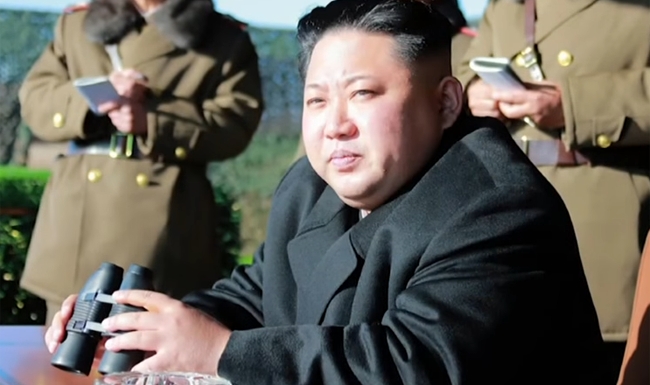
Last week, President Trump signed another executive order that aims to “target individuals, companies [and] financial institutions that finance and facilitate trade with North Korea.” The order followed months of threats between the U.S. and North Korea, fresh sanctions, and President Trump calling for other countries to stop helping North Korea in order to pressure Kim Jong-un into abandoning his nuclear weapons program.
On the heels of China’s central bank telling all of the country’s banks to stop conducting business with North Korea, the country has ordered North Korean-owned businesses to shutter, further cutting off foreign revenue to its increasingly isolated neighbor:
China is North Korea’s main trading partner, making Beijing’s cooperation essential to the success of sanctions aimed at stopping the North’s pursuit of weapons technology. China, long North Korea’s diplomatic protector, has gone along with the latest penalties out of growing frustration with leader Kim Jong Un’s government.
According to the Ministry of Commerce, North Korean businesses and ventures with Chinese partners must close within 120 days of September 11, when the UN Security Council’s approved the latest sanctions. That would be early January.
Along with this order, China’s foreign ministry called for the U.S. and North Korea to end their dispute peacefully.
“The Korean Peninsula nuclear issue is related to regional peace and stability,” said Lu Kang, a ministry spokesman. “Breaking the deadlock requires all relevant parties to show their sincerity.”
China has long argued that it doesn’t want the North Korean government to collapse or for everyday North Koreans to suffer because of sanctions limiting imports and exports, but U.N. and U.S. pressure have clearly changed the situation. Yet will this development lead to something more substantial than tweets and vague barbs from state-owned media?
(Via Business Insider)
